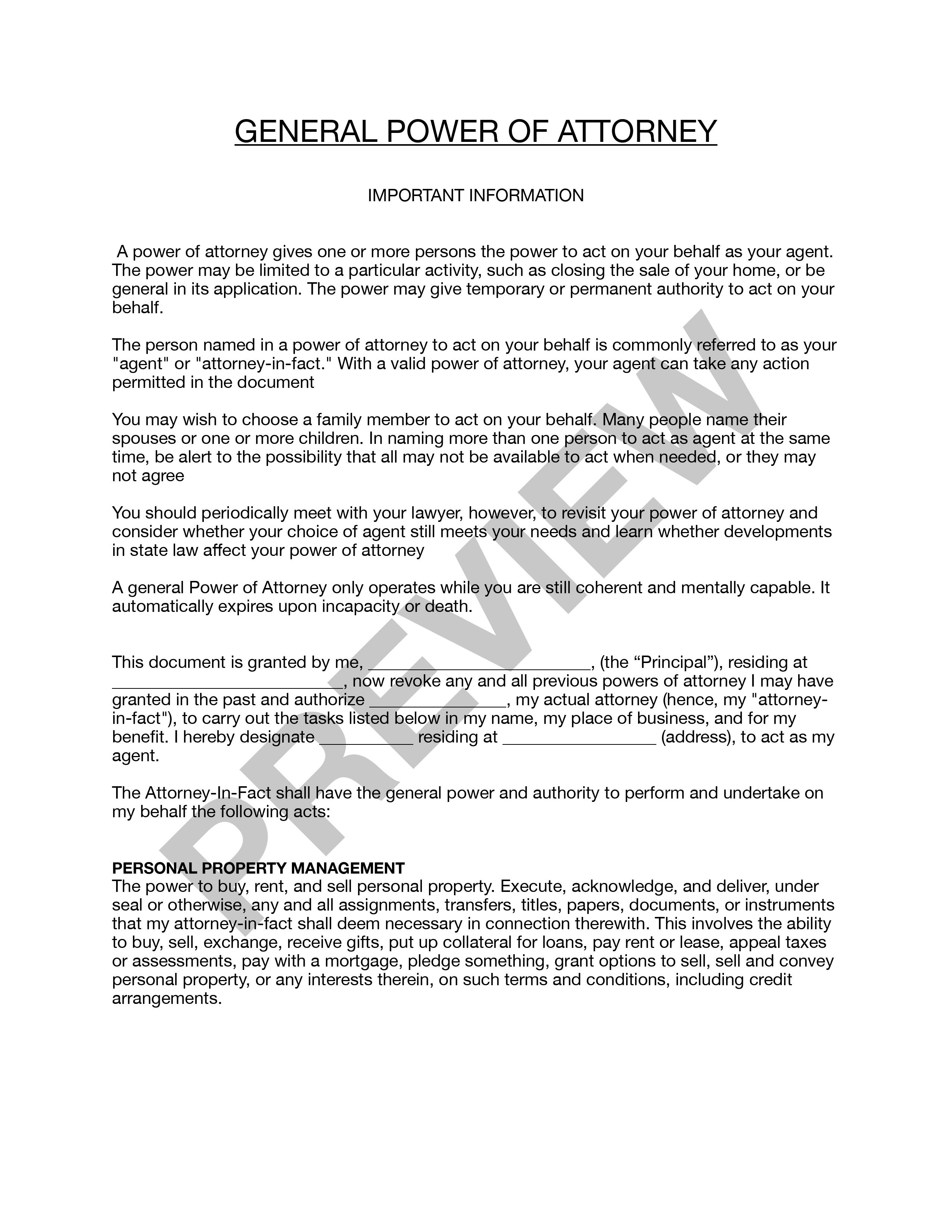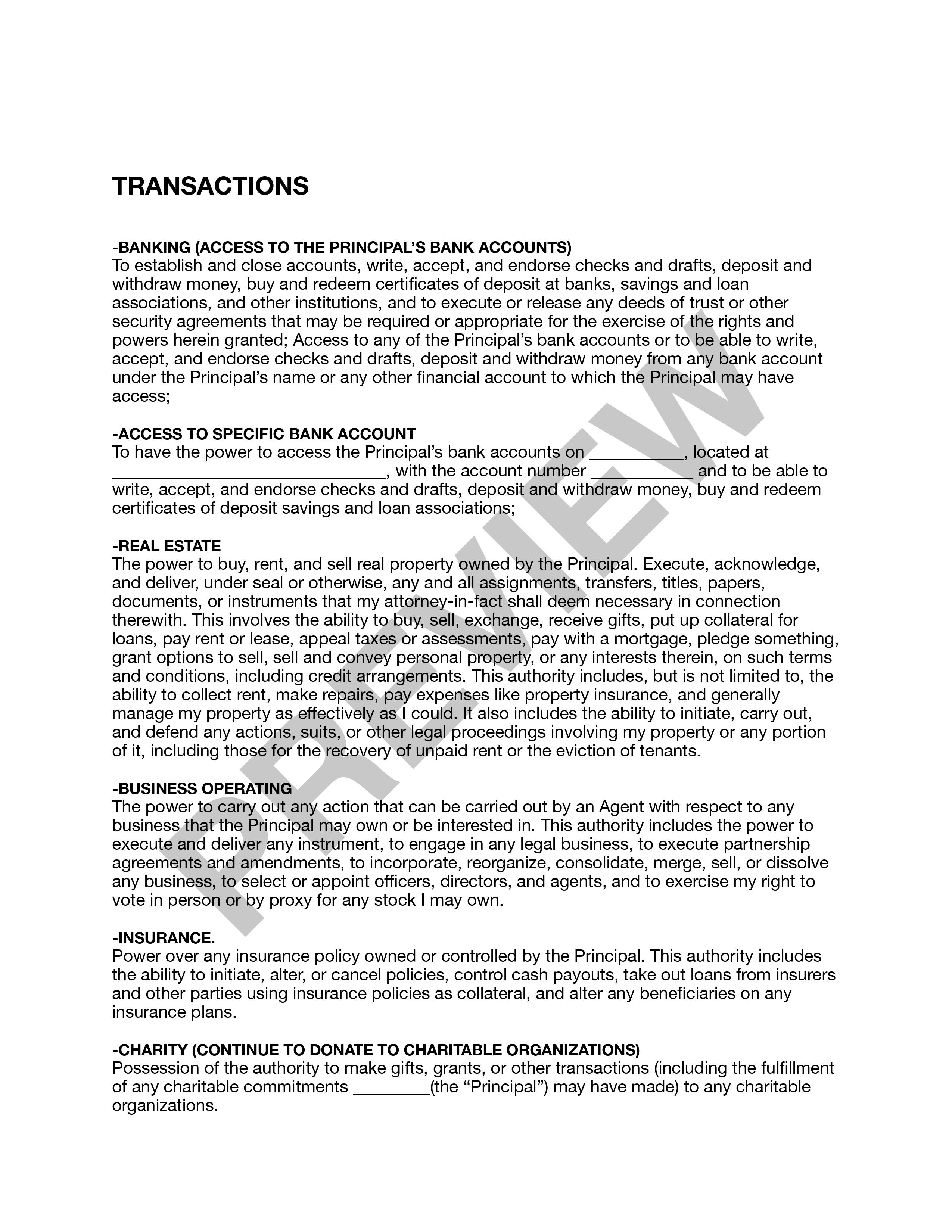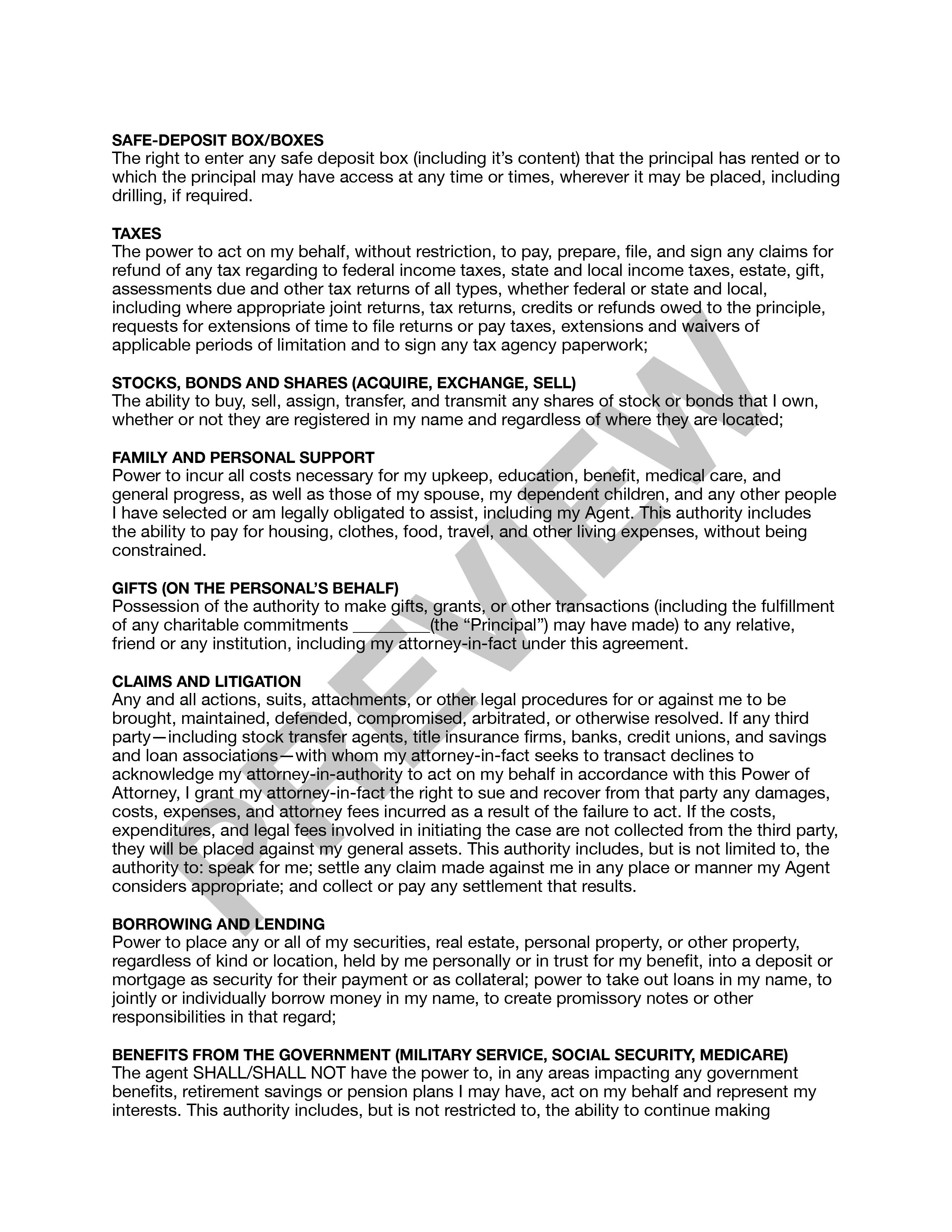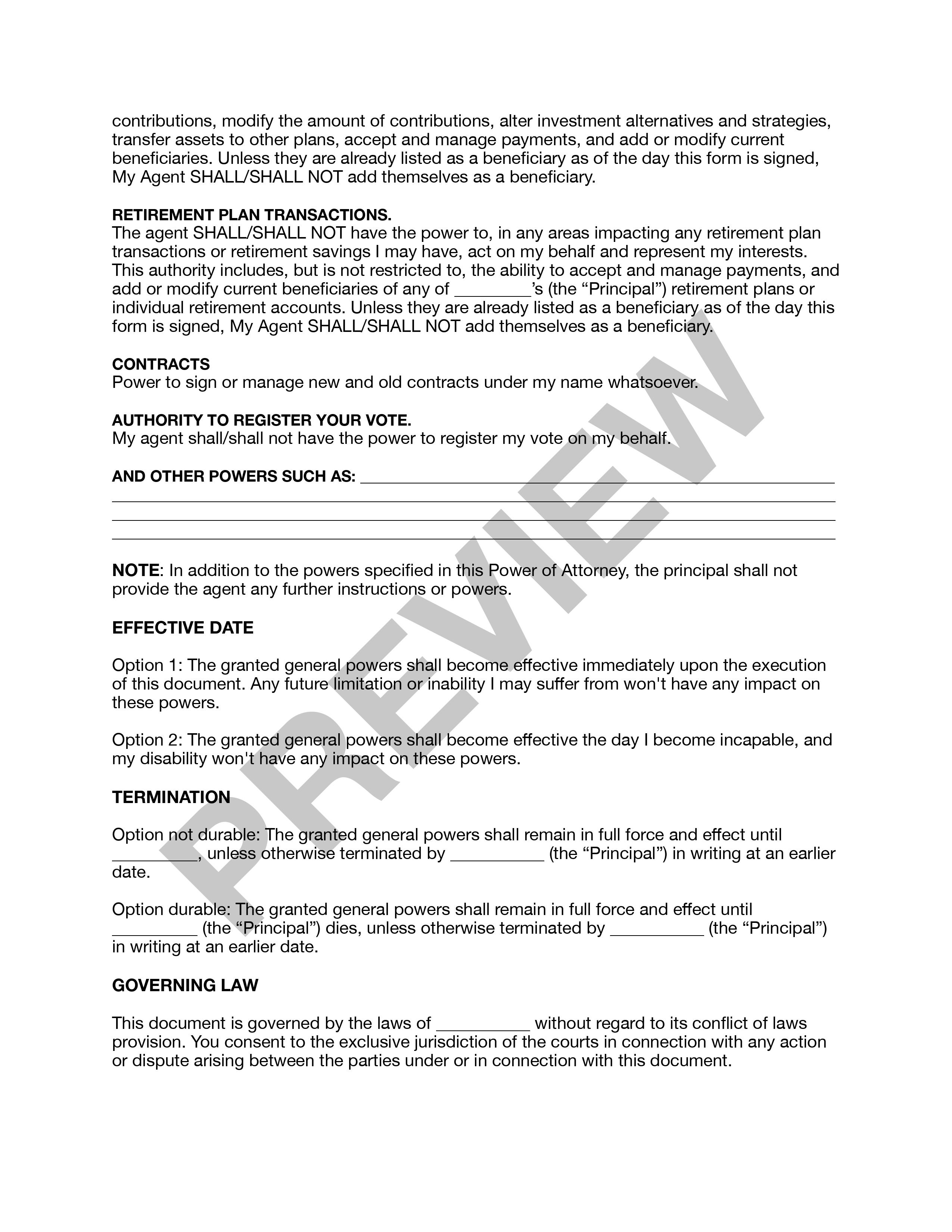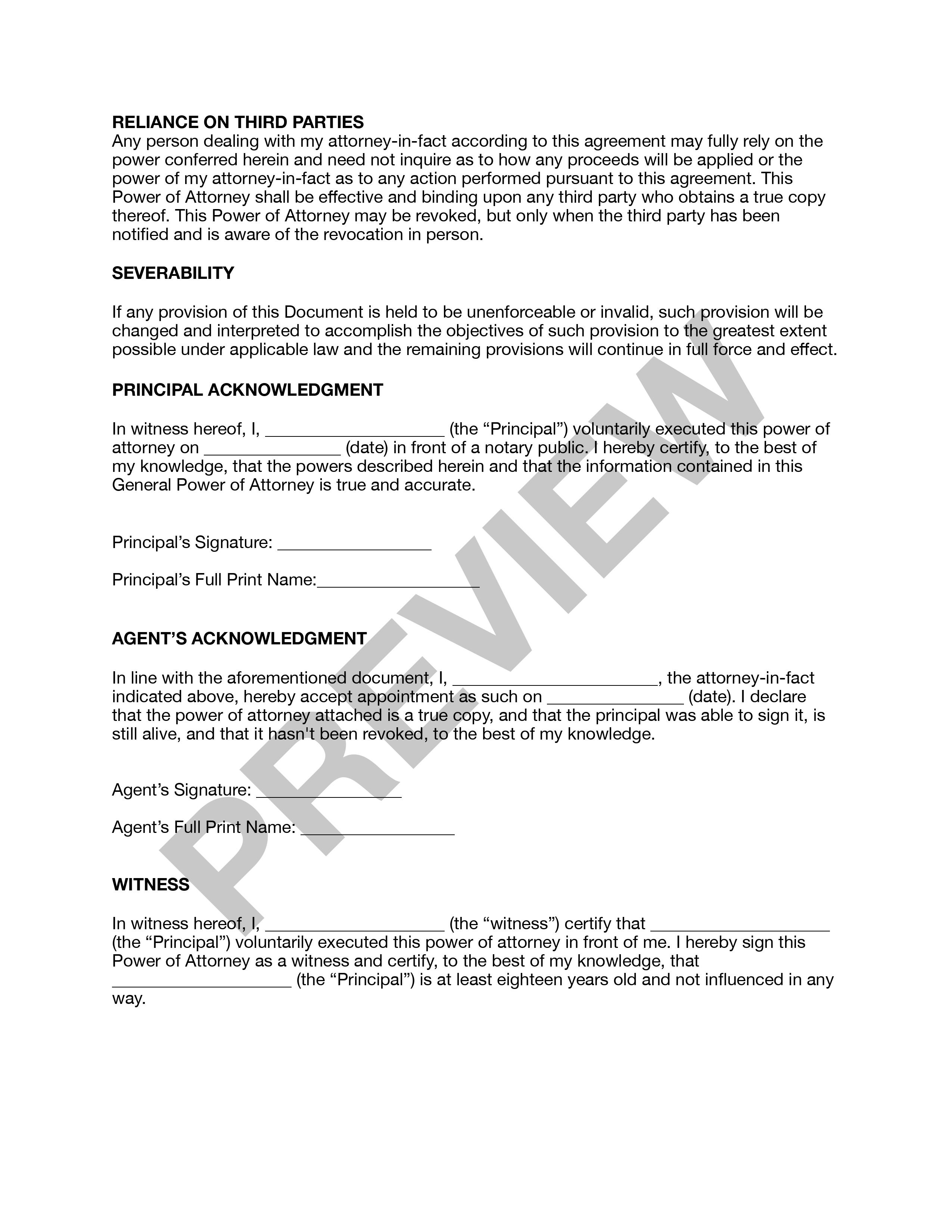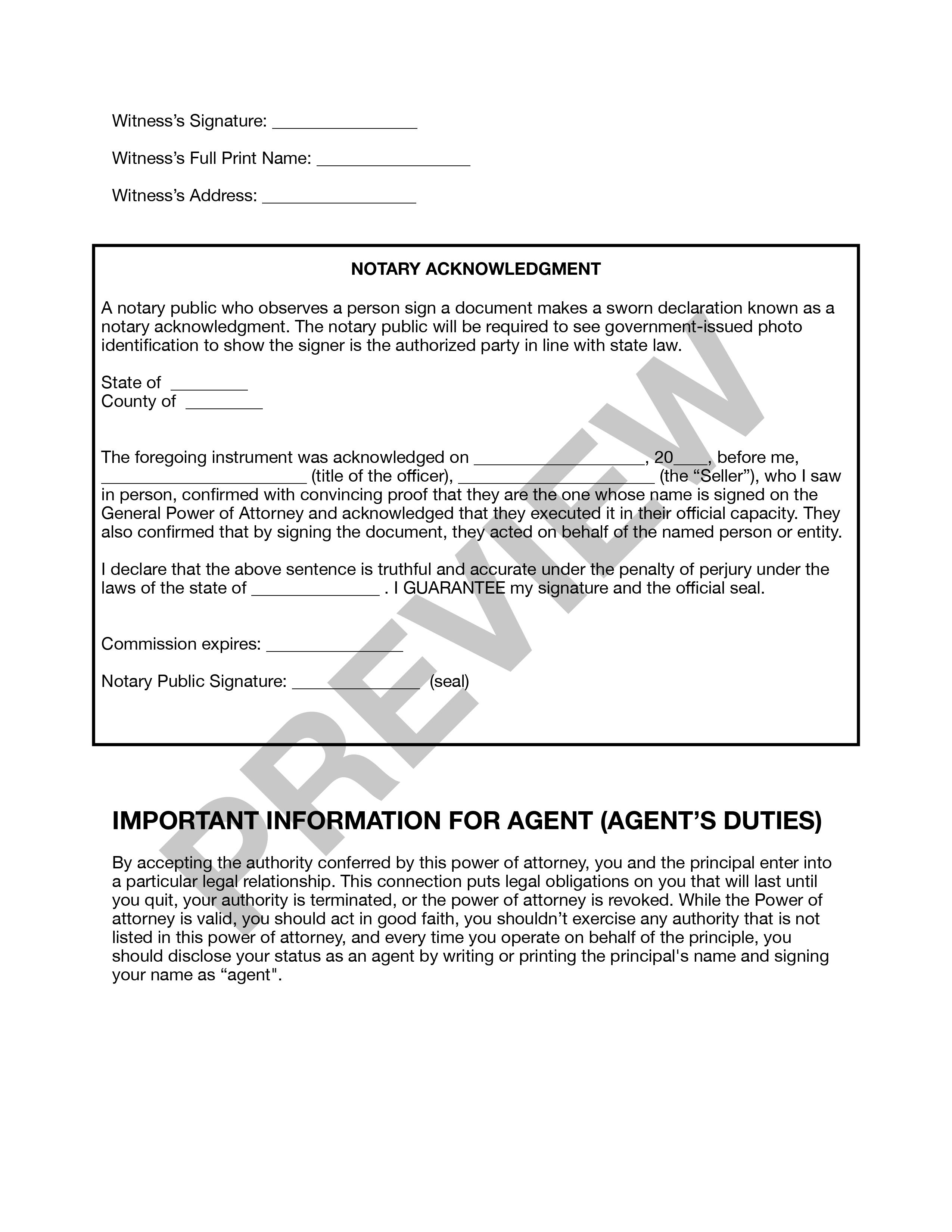Power of Attorney (financial)
Get Started
Grant of Powers
Effective Date
Durable
Principal Information
The "principal" refers to the person who is appointing an agent to act on their behalf.Agent Information
The Agent (also referred to as the attorney-in-fact) is the person who is given the authority to act on behalf of the principal.Successor Agent Information
Witnesses
First Witness (You can fill later)
Second Witness (You can fill later)
Notary Acknowledgment
Frequently Asked Questions
You should choose the state where you are a resident or where the person you are appointing as your agent under the POA resides.
A power of attorney document names someone (called the “agent”) to make legal decisions on another person’s behalf (the “principal”) if the person is not able to. For example, if you got into an accident that left you in a coma, or if you suffered from dementia, this would enable someone else to step in and manage your affairs and your property. Other examples are the right to perform or the power to transact in matters relating to real estate, banking, legal and judicial proceedings, tax payments, etc. due to circumstances such as being out of the country, growing older, or being unable to handle one's responsibilities in those matters, among others.
General powers would grant the agent broad authority to act on your behalf, such as managing your finances and handling legal matters. This can be useful if you want your agent to have significant authority to act on your behalf in a variety of circumstances.
If you prefer to limit your agent's authority to specific matters or circumstances, you may choose to grant them limited powers instead. This would allow them to act on your behalf in a specific area, such as managing your finances, without having broad authority over all of your affairs.
A durable Power of Attorney means that the authority granted to the agent under the POA will continue even if the principal becomes incapacitated or unable to make decisions for themselves. This can be important for financial matters because it allows the agent to continue managing the principal's affairs even if the principal becomes incapacitated due to illness or injury.
The principal is the person who creates the document and authorizes another person to act on their behalf. The principal is the individual who grants the authority to the agent to make financial decisions for them if they become incapacitated or unable to make decisions for themselves.
The agent, also known as the attorney-in-fact, is the person who is authorized by the principal to act on their behalf. The agent is appointed by the principal to make financial decisions for them if they become incapacitated or unable to make decisions for themselves.
The number of witnesses required for a Power of Attorney (POA) depends on the laws of the jurisdiction where the POA is being executed. The witness should not be related to the principal by blood or marriage.
In general, having at least one witness is a good idea for a POA, as it can provide additional evidence of its validity and help prevent challenges to its authenticity. Some jurisdictions may require two or more witnesses to be present when the POA is signed.
A notary acknowledement is a legal certification by a notary public that a person has signed a document in their presence and that the signature is genuine. The notary acknowledgment provides a level of assurance that the document is authentic and can be relied upon in legal proceedings.
To obtain a notary acknowledgment, the document signer must appear before the notary public, show proper identification, and sign the document in the notary's presence. The notary then affixes their official seal or stamp to the document and signs it to indicate that they witnessed the signature.
In some states in the United States, notarization of a Power of Attorney is required, while in others it is not. However, even if notarization is not required, it can be a good idea to have the document notarized, as it can provide additional evidence of the validity of the document in case of a dispute.


